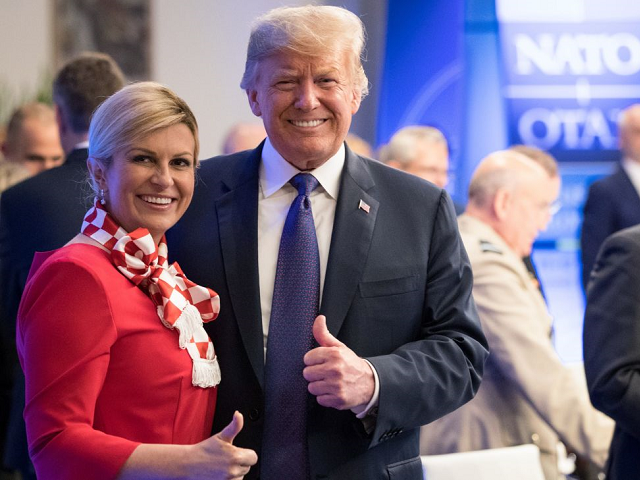More nations are joining the exodus from the United Nations’ (UN) controversial compact on mass migration, with legal experts now standing up to raise concerns about the drafting of the document and what legal implications signing it might have for countries party to the pact.
President Donald Trump was the first to pull out of the UN pact on migration in December 2017, a move which prompted howls of disapproval from both the mainstream media and globalist leaders.
Yet several nations from all over the world have outright withdrawn from the compact since initially ratifying it in July, or have signalled their intent to do so, as states gain confidence in opposing fashionable but dangerous deals that are not in their own interests.
In comments that cut across the grain of the usual business and practice of the United Nations, President Trump said at the body’s New York headquarters in September: “Migration should not be governed by an international body unaccountable to our own citizens.
“Ultimately, the only long-term solution to the migration crisis is to help people build more hopeful futures in their home countries. Make their countries great again.”
Australia, Israel, and Poland are among the latest to pull out, all citing national interest reasons.
Australian Prime Minister Scott Morris remarked Wednesday that the agreement is “inconsistent” with his nation’s best interest, and that the document “fails to adequately distinguish between people who enter Australia illegally and those who come to Australia the right way”, noting the frequent observation that the paper does not differentiate between legal and illegal migration.
Israeli Prime Minister Benjamin Netanyahu also alluded to the document’s ambiguity on illegal migrants, saying Tuesday that: “We are committed to guarding our borders against illegal migrants. This is what we have done, and this is what we will continue to do,” reports the Jerusalem Post.
Switzerland is now postponing a decision on signing the deal, and the nation’s parliament will debate the issue in the coming weeks.
These announcements followed by several days other similar messages from European nations Poland and Austria, who in turn stated their opposition to the document which both emphasises the “inevitable, necessary, and desirable” nature of massive movements of people, and calls on signatories to “prevent” campaigning against mass migration in “the context of electoral campaigns”.
Poland’s Interior Minister Joachim Brudzinski said in October that: “the draft of the agreement does not contain adequately strong guarantees of [nations’] sovereign right to decide who comes into their territory and [nor does it] distinguish legal and illegal migration”.
“We want Poles to be safe in their country.”
Hungary, the Czech Republic, Bulgaria, and Croatia (whose President Kolinda Grabar-Kitarović is pictured with President Trump above) have also signalled alarm pulled out.
The plan has been repeatedly defended in the mainstream media and in the halls of government with claims that the articles set out in the document are not legally binding, however expert legal opinion suggests that while the document is drafted as “non-binding”, it is written in a way that creates a legal framework.
This, Belgian law professor Pierre d’Argent argues, will act like other UN compacts that have proceeded it will be used by lawyers to interpret the meaning of laws.
He said: “…lawyers use this pact as a reference tool to try to guide them… This has already occurred in international or national jurisdictions to refer to instruments that are not legally binding.”
German law professor Matthias Herdegen came to a similar conclusion, as Breitbart London reported. Remarking that the UN compact occupied a “legal grey area”, it “gives the impression of [state] liability” and would raise the expectations of potential migrants in the third world, having the impact of potentially rising migration levels even if no laws actually changed.
Oliver JJ Lane is the editor of Breitbart London — Follow him on Twitter and Facebook

COMMENTS
Please let us know if you're having issues with commenting.